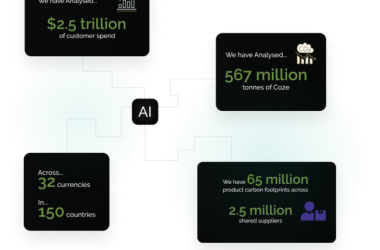Last Updated on: 17th July 2024, 04:53 pm
As artificial intelligence continues to evolve and impact various sectors, ensuring that the future generation is equipped with the necessary skills in AI is crucial for maintaining the UK’s competitive edge in the global technology landscape.
A report by Access Partnership and Amazon Web Services revealed that while half of UK employers are looking for AI-skilled talent, three-quarters struggle to find the right expertise. It’s clear that educational strategy needs a significant overhaul to bridge this skills gap and ensure that the UK can thrive in an AI-driven future.
There are several countries who are already taking innovative steps to educate their workforce in AI – for example, China’s Nanjing University have launched a groundbreaking AI core curriculum for new students, as reported by Global Times.
It’s clear that the UK need to act now to keep up with global competition in the rapidly developing AI landscape. This article will explore some potential solutions for upskilling the next generation of AI talent.
- Integrate AI into School Curriculums
A survey by Oxford University Press found that 84% of school teachers agree that it is very likely learners will need AI skills to succeed in the future workplace, they rated their schools’ current curricula and teaching methods a 5 out of 10 for how well they prepare for a future with AI technology.
What’s clear then is that young people will most definitely benefit from learning AI related skills and concepts and many experts argue that these should be taught as early as possible.
Children in primary and secondary education could be introduced to the basic concepts of AI and computational thinking from an early age. Teachers will have to source age-appropriate tools and games to teach the fundamentals of programming, logic, and problem-solving.
This will require educational leaders, industry professionals, and teachers to collaborate to develop a curriculum that includes hands-on activities and real-world applications of AI. It’s also important that the curriculum continues to evolve in line with advancements in AI technology.
- Teach AI in Higher Education
Supporting the development and expansion of undergraduate and postgraduate programs in AI at universities across the UK is essential to ensure that graduates have tech skills which will not only secure their future employment opportunities but enable them to pave the way forward for the UK to become and AI superpower.
Dan Thomson, founder of AI-powered Sensay, believes that the UK government should fund its own dedicated AI-only university. UK universities are amongst the best in the world, creating skilled graduates who contribute to a thriving economy. As the global business landscape changes rapidly due to new technologies, universities too must change their approach to keep producing world-class talent and businesses. He thinks that a specialist university would benefit from a hub effect, bringing together the UK’s best AI talent, and serving as a lightning rod of external investment, powering surrounding fields and the wider tech ecosystem.
This has approach has already been applied in the UAE where the Mohamed bin Zayed University of Artificial Intelligence, the first AI University, was opened in 2019. The university is dedicated to using the power or AI to address real-world challenges, according to Khaleej Times.
- Leverage Government and Industry Support
Corporate leaders and governments, who have the power to bring change, must address the impact of AI on jobs through strategic workforce planning and reskilling initiatives. It’s clear that the UK government must develop and implement a national AI strategy that covers both education and workplace development, to ensure a future workforce that are skilled in AI.
For this, collaboration between governments, educational institutions, and businesses is essential to provide accessible and comprehensive training and education programmes.
It’s also important for governments to create and support innovation hubs and incubators that focus on AI startups, providing resources, mentorship, and networking opportunities for aspiring entrepreneurs. Sensay founder Dan Thomson notes that one way to do this is fostering a partnership between a new AI university and leading private venture capital firms, giving private investment the most efficient route possible into the UK’s AI ecosystem.
Conclusion
AI is fast transforming almost every industry, driving innovation amongst entrepreneurs, and reshaping the global economy. As AI continues to advance, its impact on society, business, and technology is becoming increasingly profound. To prepare the future generation to thrive in the world of work and contribute to the success of the UK economy, it is essential then that they are taught AI. Employers, universities, schools, and the government must adapt their approaches now to ensure that the next generation of professionals is equipped to harness AI’s potential and navigate its challenges, to allow the UK to secure its position as a leader in the AI-driven future.









